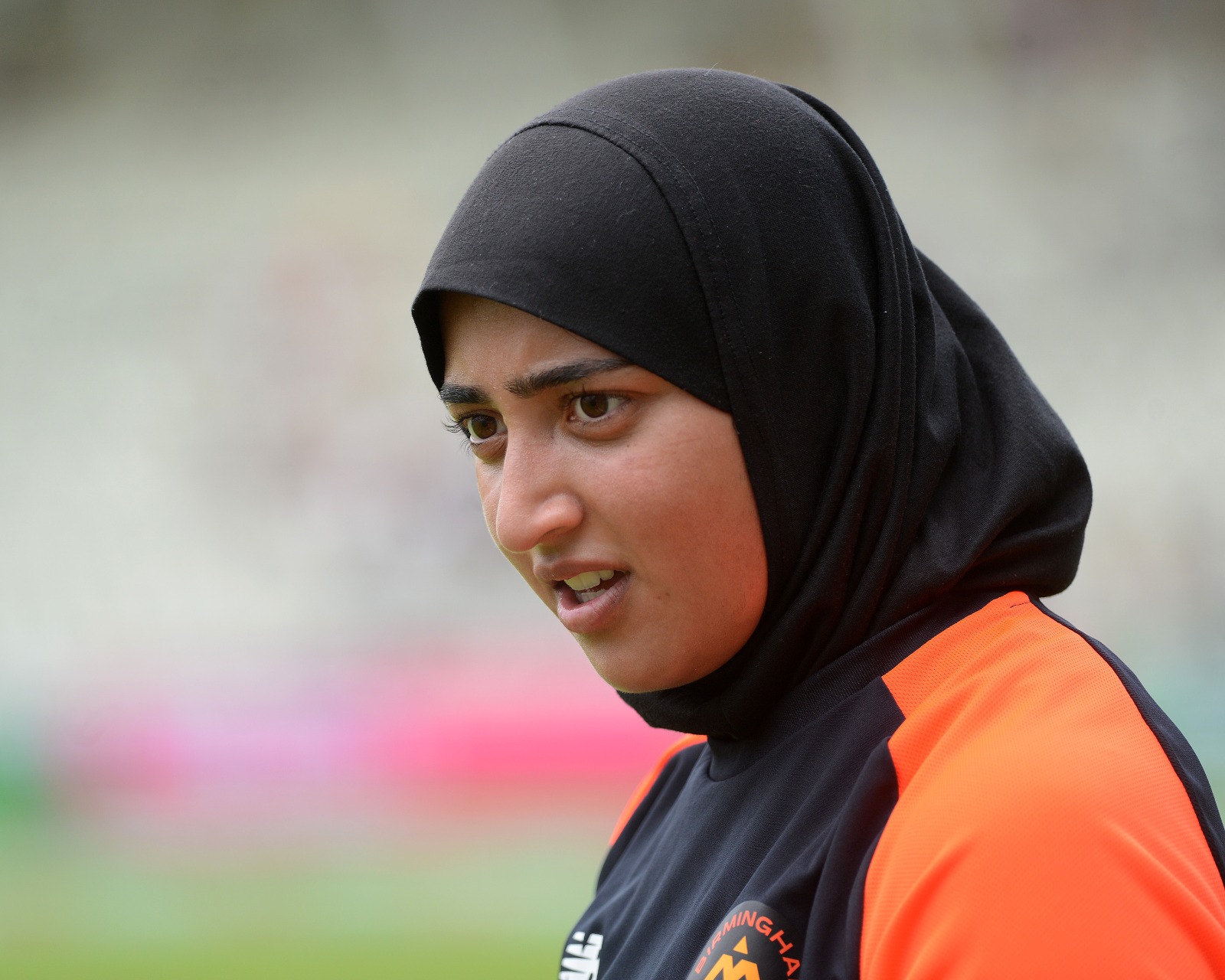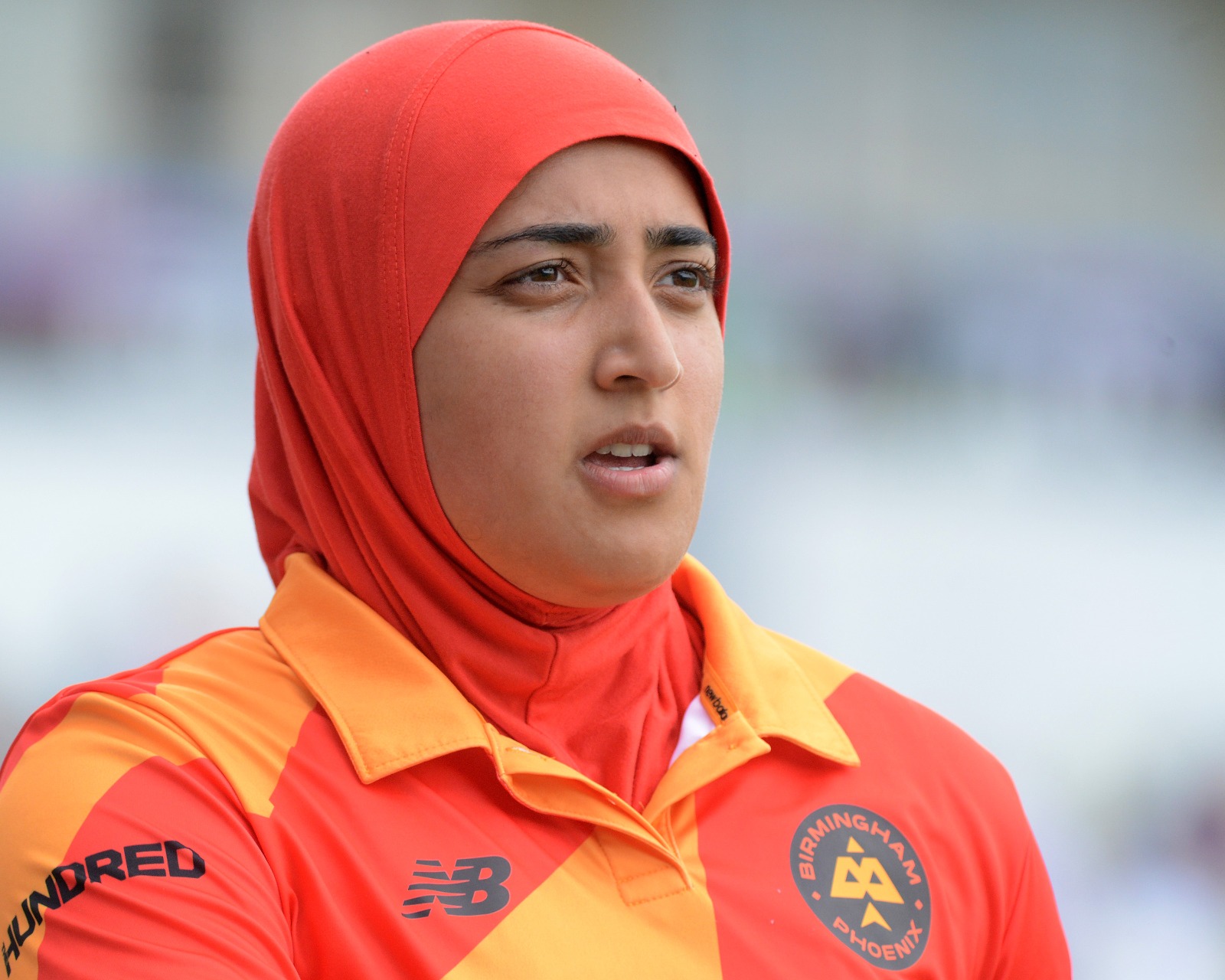Abtaha Maqsood is a cricketer who is quickly making a name for herself in the game.
She is known for being a talented bowler, but Maqsood is not just skilled at cricket; she is also a black belt in taekwondo. She was Scotland’s flag bearer at the 2014 Commonwealth Games in Glasgow and also part of the Scotland side during the 2017 Women’s World Cup qualifier.
Maqsood took a break from playing for her club, Birmingham Phoenix, and the Scotland national side, to sit down with Islam Channel for a chat about her sporting inspiration. She told us how sports was drilled into her and her siblings from a young age by her father. He was a keen cricketer when he was younger, playing in the streets. From there, he brought his love of the game to Scotland, where he settled and had a family. And this is where Abtaha caught the cricket bug. She also cites legendary bowlers such as Shane Warne, alongside Sri Lankan and Pakistani players, such as Imran Khan, as inspirations in the game. But as she grew up, Abtaha learned a lot more about women’s cricket and started watching people like Australia’s Ellyse Perry and Meg Lanning.

“My brothers and my sister used to play outside in the front garden,” Maqsood explains. “From a pretty young age, my love just kind of grew. And my dad always said, no matter what sport you play, you need to make sure you play a sport and keep fit. He’s always said that to me and my brothers equally. And so it was mainly my dad, who helped me realise my love for cricket.”
Such was her love for cricket that she eventually joined a club, which at the time didn’t have a girls team, so she played alongside boys:
“It took a little bit of a while for my parents to find the club. Because obviously, it’s quite difficult to find a women’s club in Glasgow. And then we settled for a club where it was just me and then a bunch of boys. I think I was about ten years old when that happened. And then I was about eleven when I played my first proper game for Poloc Cricket Club.”
In that time, the women’s game had grown dramatically in Scotland – whereas previously Maqsood felt it was “fairly easy” to get into the national side, there’s now increasingly more talent and competition for places.
“It’s grown a lot,” Abtaha says. “It’s definitely one of the fastest growing women’s sports in Scotland. And the talent is definitely there. There’s so many more girls playing. And even at grassroots level, there’s so many more women’s clubs out there. There is still just one in Glasgow, but there’s loads in Edinburgh. And so it’s definitely growing a lot.”
Maqsood also made her debut in the women’s division of ‘The Hundred’ tournament, which she found out via text message while studying at University. Maqsood explains how it all came about:
“When I found out I was going to be playing in the Hundred, I was at uni, which was about two years ago now. And I got a text saying that ‘we’d love to have you’ and obviously that was like a huge deal for me. And I texted like my family straight away. I was just super happy about it all and they were obviously really happy for me. I am studying dentistry at uni right now, which is quite difficult to kind of juggle both things.”
Turning up for her club Birmingham Phoenix in the tournament, she raised worldwide praise for setting an example to all the women cricketers worldwide for wearing her hijab when playing. Although the team lost, she garnered worldwide acclaim for her head-turning bowling performances.
“I never really thought I would be that sort of inspiration when I first came into the Hundred,” Abtaha reflects. “And, then when I got here, I realised ‘yeah, this is a big deal.’ Like, there’s not that many hijabi players out there. And none that are playing at a level like this. And so yeah, it makes me feel proud. I’m happy that I am a role model for a lot of people and there can be a little bit of pressure with that. When I go out there and play, I know that there’s people watching, and there’s people hoping that I’m doing well. But I try not to think about that and just play my own game. I’m really happy that I can be that person who can hopefully inspire and get us to go play some cricket.”
Not only is Abtaha a role model in cricket, but also one as a Muslim – something that’s very important to her:
“For me, it’s just part of my identity. You know, I was quite young when I started. It’s just a way for me to kind of assure that I am proud to be a Muslim, and make sure that people know, when they look at me, they know that I’m a Muslim, and I’m proud to be that and I’m proud of my faith. When I was young, I didn’t really quite understand what it all was. But as I’ve grown into it, honestly it means the world. To me, that’s one of the most important things in my life.”


















